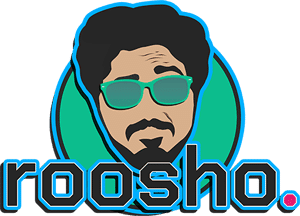As of Feb. 2, 2025, the primary few necessities of the E.U.’s AI Act are legally binding. Companies working within the area that don’t abide by these necessities are susceptible to a high quality of as much as 7% of their world annual turnover.
Sure AI use circumstances are actually not allowed, together with utilizing it to control behaviour and trigger hurt, for instance, to youngsters. Nonetheless, Kirsten Rulf, co-author of the E.U. AI Act and companion at BCG, stated that these are relevant to “only a few” corporations.
Different examples of now-prohibited AI practices embody:
- AI “social scoring” that causes unjust or disproportionate hurt.
- Threat evaluation for predicting legal behaviour based mostly solely on profiling.
- Unauthorised real-time distant biometric identification by regulation enforcement in public areas.
“For instance, banks and different monetary establishments utilizing AI should fastidiously make sure that their creditworthiness assessments don’t fall within the class of social scoring,” Rulf stated. Learn the whole checklist of prohibited practices by way of the E.U.’s AI Act.
As well as, the Act now requires workers at corporations that both present or use AI techniques might want to have “a adequate stage of AI literacy.” This can be achieved by way of both coaching internally or hiring workers with the suitable skillset.
“Enterprise leaders should guarantee their workforce is AI-literate at a practical stage and geared up with preliminary AI coaching to foster an AI-driven tradition,” Rulf stated in a press release.
SEE: roosho Premium’s AI Fast Glossary
The following milestone for the AI Act will come on the finish of April, when the European Fee will probably publish the ultimate Code of Observe for Normal Goal AI Fashions, in response to Rulf. The code will turn out to be efficient in August, as will the powers of member state supervisory authorities for imposing the Act.
“Between at times, companies should demand adequate info from AI mannequin suppliers to deploy AI responsibly and work collaboratively with suppliers, policymakers, and regulators to make sure pragmatic implementation,” Rulf suggested.
AI Act isn’t stifling innovation however permits it to scale, in response to its co-author
Whereas many have criticised the AI Act, in addition to the strict strategy the E.U. has in direction of regulating tech corporations typically, Rulf stated throughout a BCG roundtable for the press that this primary part of the laws marks the “begin of a brand new period in AI scaling.”
“(The Act) brings the guardrails and high quality and danger administration framework into place that it must scale up,” she stated. “It’s not stifling innovation… it’s enabling the scaling of AI improvements that all of us need to see.”
She added that AI inherently comes with dangers, and if you happen to scale it up, the effectivity advantages will undergo and endanger the fame of the enterprise. “The AI Act offers you with a very good blueprint of the way to sort out these dangers, of the way to sort out these high quality points, earlier than they happen,” she stated.
In accordance with BCG, 57% of European corporations cite uncertainty surrounding AI rules as an impediment. Rulf acknowledged that the present definition of AI that falls beneath the AI Act “can’t be operationalized simply” as a result of it’s so broad, and was written as such to be in keeping with worldwide pointers.
“The distinction in the way you interpret that AI definition for a financial institution is the distinction between 100 fashions falling beneath that regulation, and 1,000 fashions plus falling beneath that regulation,” she stated. “That, in fact, makes an enormous distinction each for capability prices, paperwork, scrutiny, but in addition may even coverage makers sustain with all of that?”
Rulf confused that it is vital companies have interaction with the E.U. AI Workplace whereas requirements for the AI Act which are but to be phased in are nonetheless being drawn up. Which means that policymakers can develop them to be as sensible as potential.
“As a regulator and coverage maker, you don’t hear these voices,” she stated. “You can not decontrol if you happen to don’t know the place the massive issues and stepping stones are… I can solely encourage everybody to actually be as blunt as potential and as industry-specific as potential.”
No matter criticism, Rulf stated the AI Act has “developed into a worldwide customary” and that it has been copycatted each in Asia and in sure U.S. states. This implies many corporations could not discover it too taxing to conform if they’ve already adopted a accountable AI program to abide with different rules.
SEE: EU AI Act: Australian IT Professionals Must Put together for AI Regulation
Greater than 100 organisations, together with Amazon, Google, Microsoft, and OpenAI, have already signed the E.U. AI Pact and volunteered to begin implementing the Act’s necessities forward of authorized deadlines.






No Comment! Be the first one.